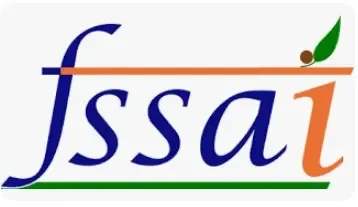Is Dabur's claim of '100 pc fruit juice' misleading?

Synopsis
Key Takeaways
- Dabur's claim of '100 percent fruit juice' is under scrutiny.
- The FSSAI emphasizes compliance with food safety regulations.
- Transparent labeling is crucial for consumer trust.
- Legal interpretations are pivotal in food marketing practices.
- The outcome may influence future labeling standards.
New Delhi, April 30 (NationPress) The assertion made by the well-known FMCG company Dabur that its selection of fruit beverages is composed of “100 percent” fruits breaches regulations and is potentially misleading for consumers, as stated by the Food Safety and Standards Authority of India (FSSAI) in a report to the Delhi High Court.
A writ petition submitted by Smita Singh, Assistant Director at the FSSAI on April 22 (a copy of which is available to IANS), contests Dabur's “100 percent” claim, pointing out that the juices include water and fruit concentrates. Furthermore, the designation “100 percent” is not officially recognized for food items.
“It is respectfully noted that any Food Business Operator (FBO) who attempts to label, promote, or sell fruit juice products using the term '100 percent' does so without any statutory permission, violating the legal framework established under the Food Safety and Standards Act, 2006, along with the associated rules and regulations,” the petition stated.
The statement also clarified, “The term 100 percent represents a numerical value rather than a qualitative description.”
In June 2024, the food authority had issued a notice instructing FBOs to eliminate claims such as “100 percent fruit juices” from the labeling and marketing of fruit juices.
Dabur had previously contended that the FSSAI's order was legally flawed and arose from a misinterpretation of the existing regulations, as reported.
In the petition, the FSSAI referenced the insights from the scientific panel on Labeling and Claims/Advertisements (SP-08) during its 47th and 49th meetings, regarding three of its products in the Real’s fruit beverage line – Mixed Fruit Juice, Apple Juice, and Grape Juice.
“The 100 percent claim is misleading since the ingredient list clearly shows the inclusion of water and that the mixed fruit juice concentrate is only 6.8 percent, along with added natural flavoring substances,” according to the meeting findings.
“The term 100 percent lacks a definition in the FSS Act 2006, Rules, and regulations,” it mentioned.
This matter is currently pending before the Delhi High Court, with the next hearing scheduled for July 7.










